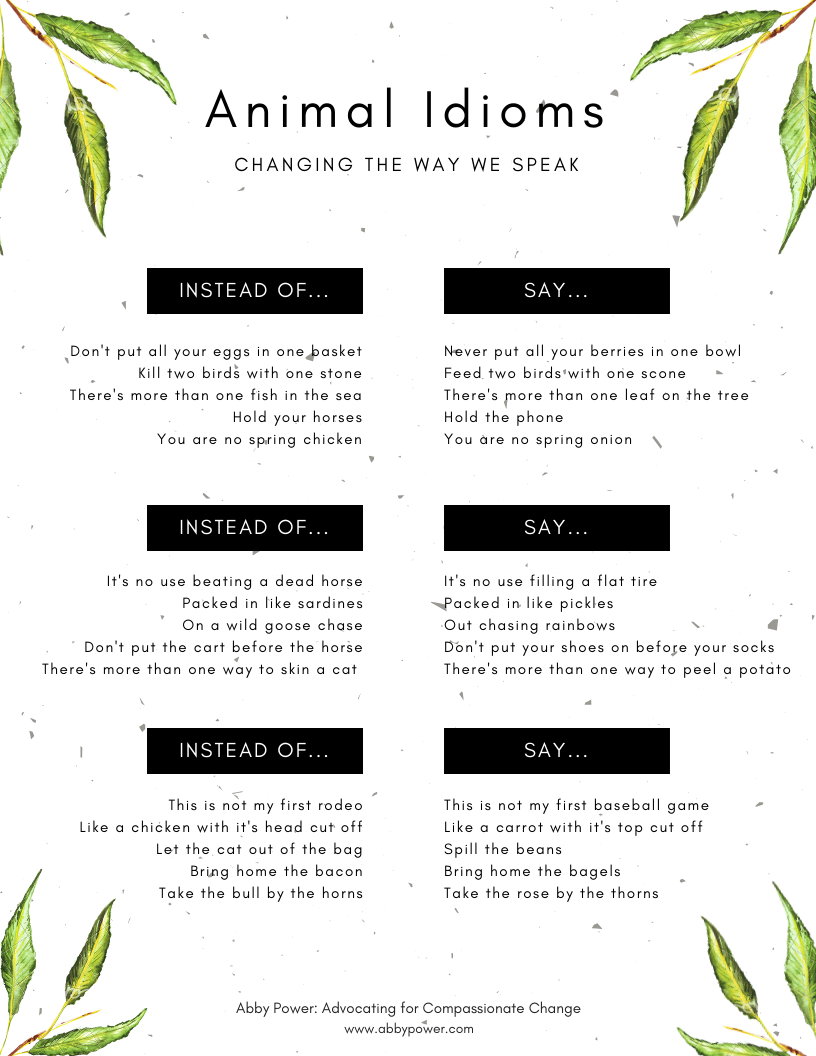|
We live in words. The way we speak, think, and feel are all processed and synthesized through words. It wasn't until I took a humane education course that I could step back and look at the language we use.
Animal idioms, in particular, showcase our relationship with other animals, often in violent or oppressive ways. The first step to changing this relationship is by changing our language. To help get us started, I created a guide to help us transition to more animal-friendly idioms. I hope you find it helpful!
1 Comment
This presentation was the capstone project for my introduction to humane education course. I was tasked with coming up with a positive vision for a solutionary-focused humane education program or project that I wanted to implement. I decided to create a presentation that could easily be tailored for people of all ages, from young children to adults. When we look at the words that we use, we can begin to think critically about them and determine if they are helpful or harmful. If they are harmful, we can then use it as an opportunity to change the way we speak. During the presentation, I offer alternative phrases that we can use to start the shift to more animal friendly phrases. Excerpt from the presentation:
Why do we feel the need to change the name from cow to beef, or pig to pork? We say ‘livestock” in reference to the farmed animals that are used for food. If you break down the word live stock, it is essentially stock that is alive. It’s a way of reducing them as a commodity that you can trade. It strips them of their sentience. Most people don’t bat an eye when you say slaughterhouse. But when you step back and think about the word, you start to question why in the world do we need something in the English language that is a house of slaughter? Author, Carol Adams explains that when we drop the possessive language when talking about animals, such as, instead of saying, the lamb’s leg or the chicken’s wing we say, leg of lamb, chicken wing, it enables us to fall into the cognitive dissonance trap and that animal’s identity gets lost. We use words to distance ourselves from the reality so that we can stay blissfully (kind of not aware) of what needs to happen in order to have that burger. Hope you enjoy and are able to incorporate into your humane education! Abby |
BlogArchives
December 2019
Categories
All
|

 RSS Feed
RSS Feed
